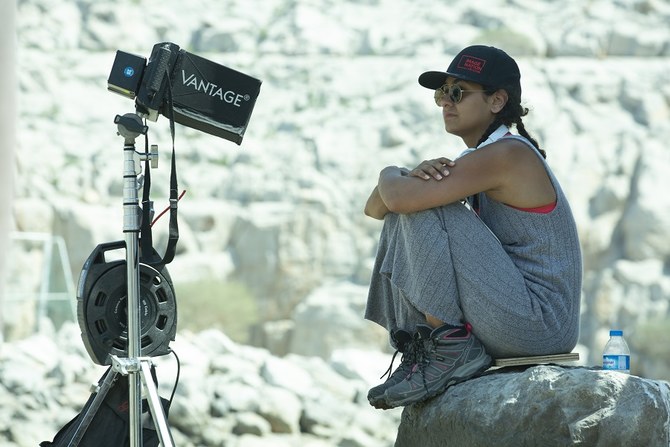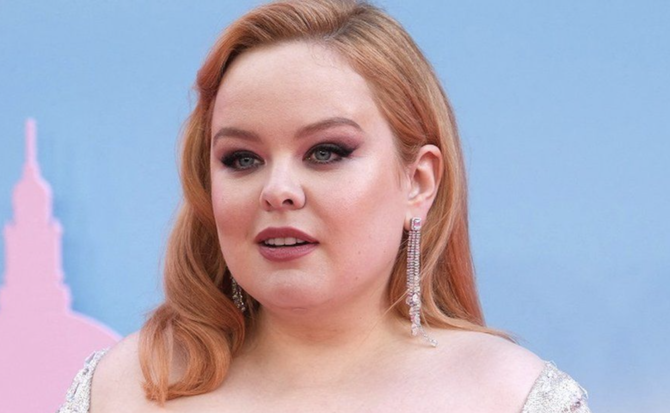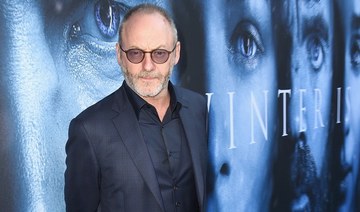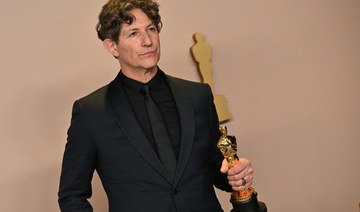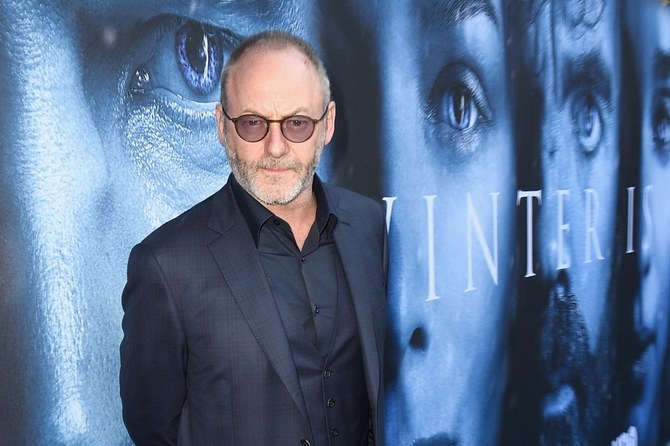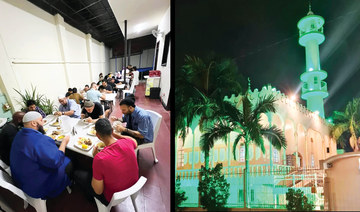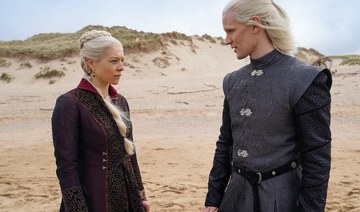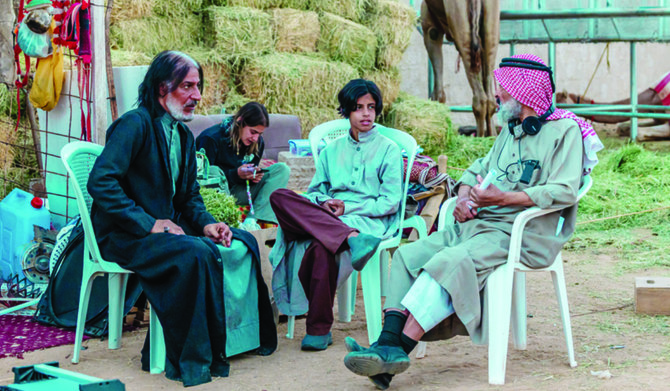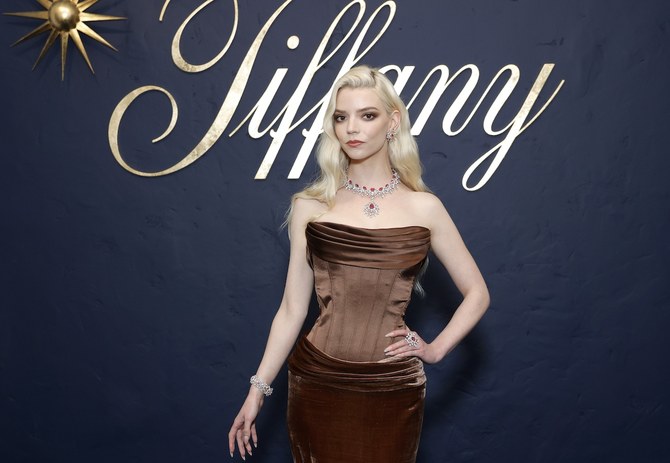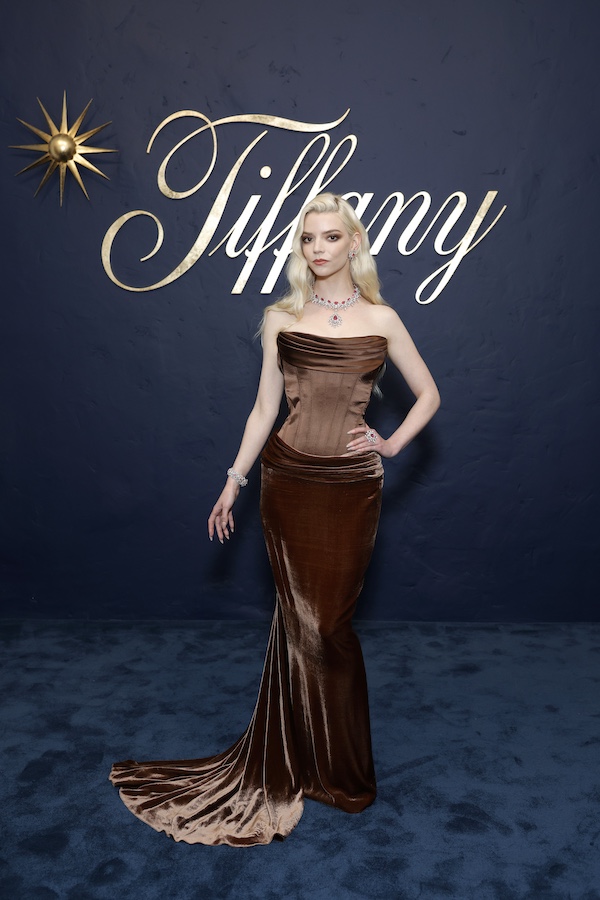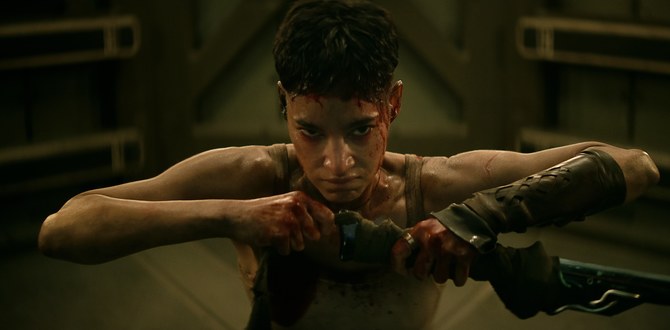VENICE: Shahad Ameen always had faith things would change. When the Jeddah-born director first decided to become a filmmaker, there were no cinemas in Saudi Arabia and women were often limited in the career paths they could pursue.
None of this mattered to Ameen — she never doubted that she could achieve her goal. Now, her faith has paid off: Cinema has come to Saudi Arabia, and Ameen’s debut feature film “Scales” has premiered at the Venice International Film Festival, after four years of grueling work.
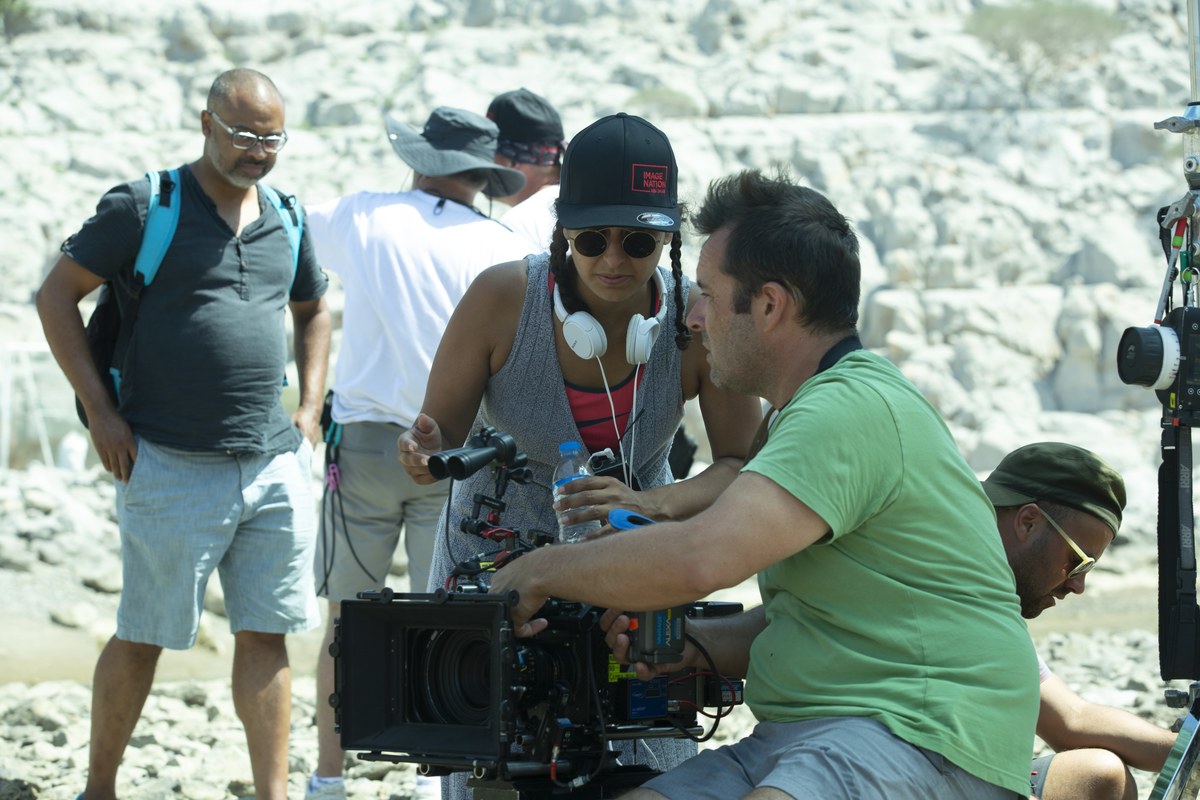
Shahad Ameen (center). (Supplied)
“People looked at me like, ‘Are you crazy? What are you going to do with this degree? Why would anyone study filmmaking?’ I said, ‘I know what’s going to happen, you don’t.’ I knew that something would change,” Ameen tells Arab News.
Ameen first fell in love with visual storytelling through watching Japanese animation and American films, but it wasn’t until she saw “Al-Kawaser,” the popular 90s Syrian television show starring Rashid Assaf, that she knew she wanted to make a career out of it herself.
“Before that, I knew that I would be a writer, maybe a poet, but I remember seeing that series and thinking, ‘Oh my gosh, it’s an Arabic show that I’m really interested in watching! People are speaking my own language and they look like me.’ This is when I decided to be a filmmaker. I really wanted to tell Arabic stories, and I really wanted to see something that represented me on screen,” says Ameen.
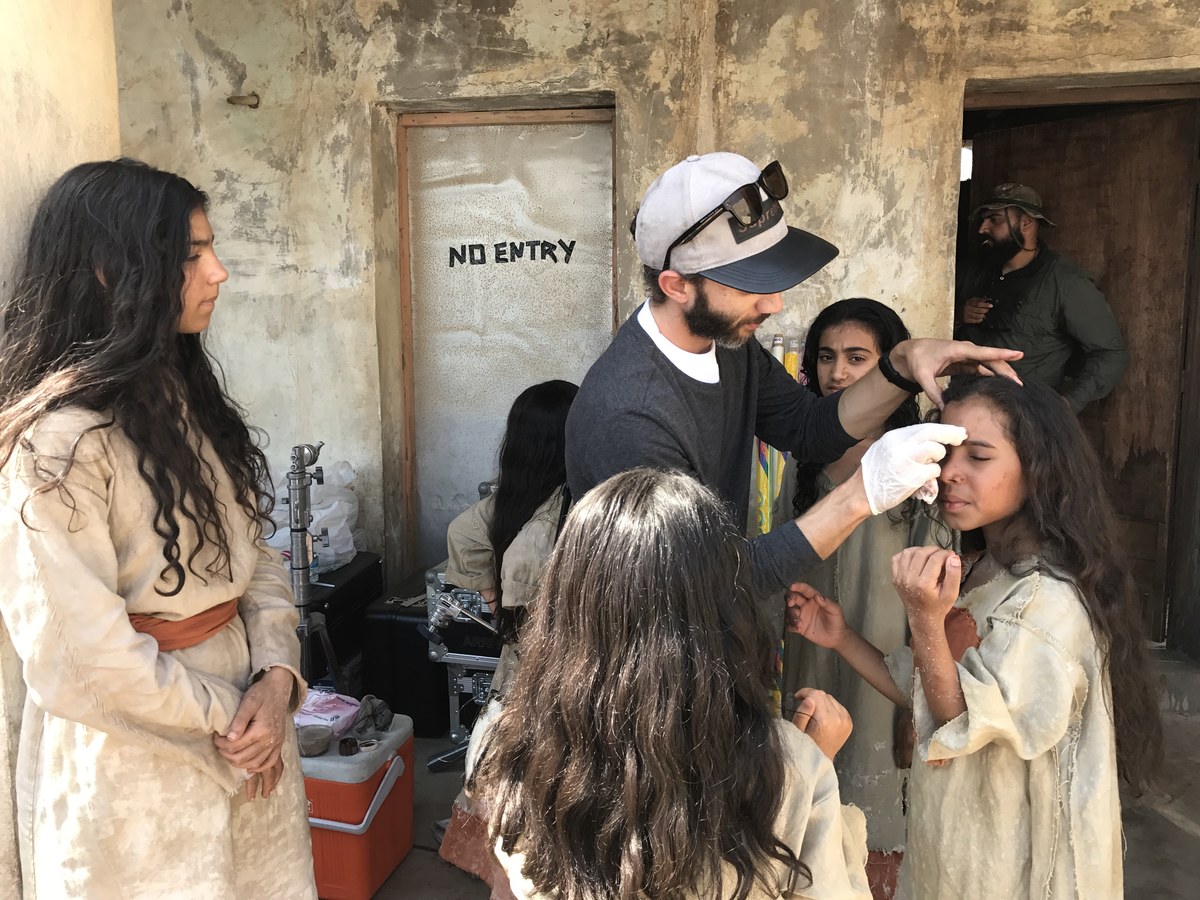
The film was shot in Oman. (Supplied)
Her father bought Ameen her first camera at nine years old, and her friends and she quickly began shooting short films — often period pieces with props from around the house, edited directly onto VHS, and filming the credits by holding the camera up to a PowerPoint presentation on the family computer.
When Ameen first arrived at film school in London she was surrounded by American and European students who were far ahead of her in terms of their film education, but she refused to let that deter her.
“In the Arab region, especially in Saudi Arabia, it was not something that we knew. I felt like I was lagging behind compared to my classmates,” she says. “I had to work much harder to understand film theory and the visual language. I learned that cinema is a visual language, and you have to depend on visuals. That’s something that we don’t understand as Arabs, because we’re very much a literary-based culture.”
Ameen didn’t listen to everything they taught her in film school, of course. Students are instructed to never use babies, boats or beasts in their debut feature, because of the intense difficulty and skill needed. But with her first full-length film, following a series of acclaimed shorts, Ameen decided to tackle all three.
Set in a dystopian world, “Scales” is a fable about a small fishing village and the mermaids that live in its surrounding waters, and a young girl who defies tradition to set her own path forward, much like Ameen herself.
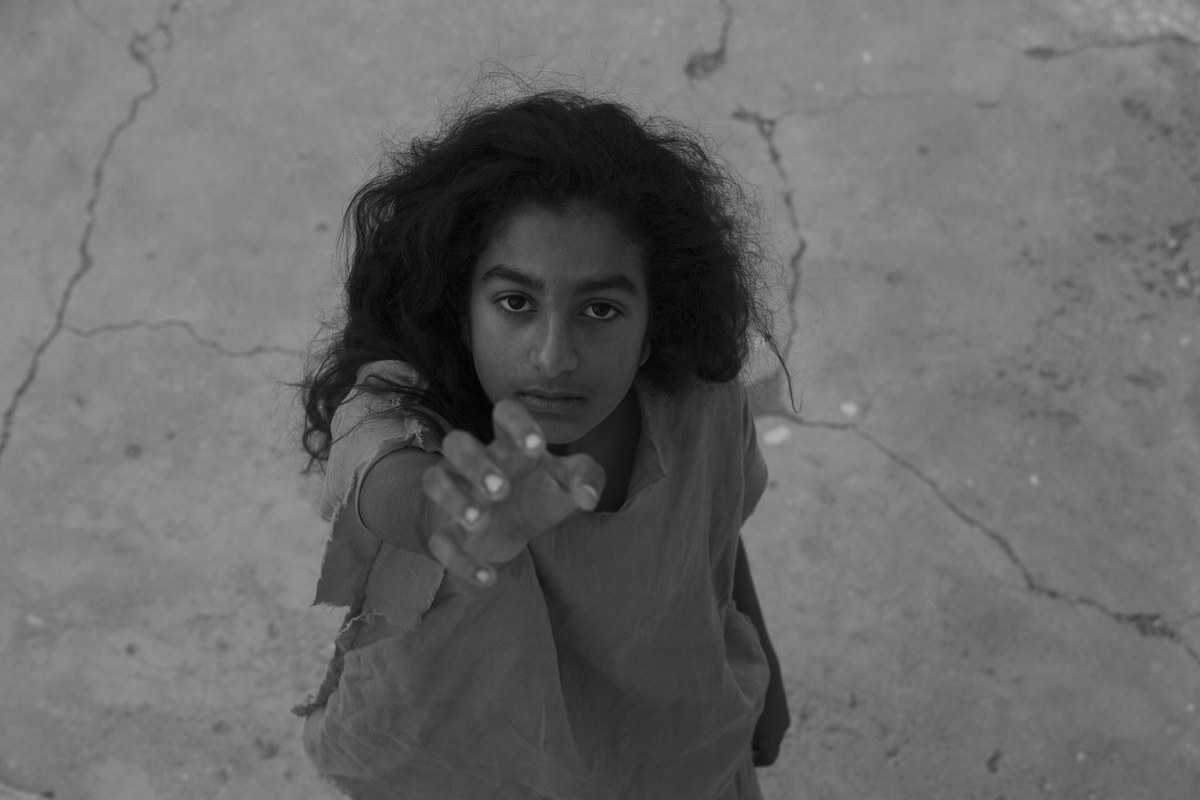
A still from the film. (Supplied)
“We had to stay for 33 days on the water in a small village that doesn’t have any infrastructure for cinema production. What you learn in film school is true,” she says. “Shooting the mermaids was so hard. Shooting on water would triple our time, literally. Every shot we would need to wrangle the boat, the waves would keep tilting the boat, not to mention loading and offloading actors. It was so challenging, but so much fun.”
Ameen brought in a strong Saudi cast and crew for filming in a remote town in Oman. In the lead role of Hayat, Ameen cast her long-time collaborator Baseema Hajjar, a 15 year-old actor also born in Jeddah, with seasoned actor Yaqoub Alfarhan as Hayat’s father Muthanah.
“I did two of my short films with Baseema so I’ve known her since she was about six,” says Ameen. “I also did some commercials with her — I know her brothers and her family very well. She and Yaqoub were attached to the project before we even got funding.”
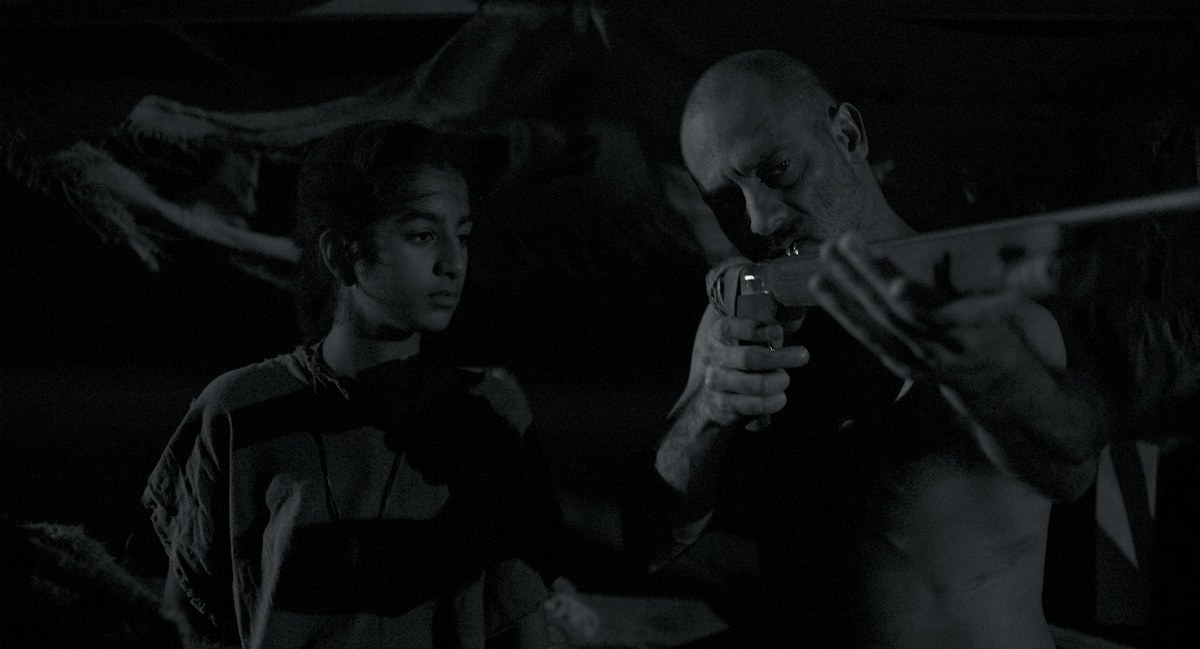
A still from the film. (Supplied)
Even when Hajjar’s school exams clashed with the shooting schedule and there were suggestions that the project should move on without her, Ameen was steadfast in her belief that she was the only actor for the role.
“She’s very instinctive. She just reacts to things. When you see her, you see how special she is. It’s the way she sees the world. That’s what I wanted in Hayat — someone who sees the world like Baseema sees the world,” says Ameen.
In addition, Ameen felt that Hajjar’s identity as a young Saudi woman brought the life experience needed to capture the themes of the film: “I wanted a Saudi girl who knows the pain of being a second-class citizen, that knows the pain of being in the middle of a very male-dominated society. Baseema was that for me.”
Ameen found one role especially hard to cast — Amer, the mermaid hunter who takes Hayat under his wing.
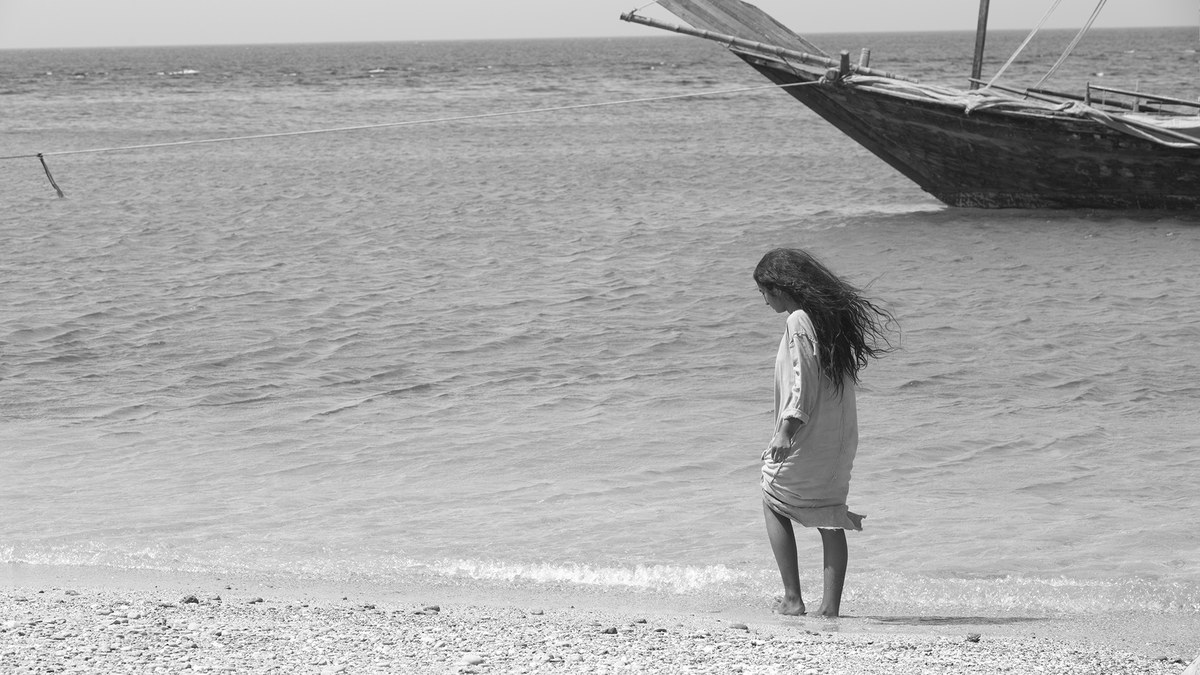
A still from the film. (Supplied)
“We auditioned a lot of well-known Khaleeji actors and non-actors and none of them lived up to the character, and how his internal pain should be represented. Finally, we went with Ashraf Barhom a Palestinian actor, and he really did the role justice. We were so glad to have him because it was so important that Baseema had an experienced actor who she could play against, and frustrate her, and move her. That’s what he did with her on set — he made her so much better. He and Yaqoub were so good to her,” says Ameen.
Ameen’s distinctive black-and-white visual style for the film had a number of influences, from the films of Niki Caro, Yasujirō Ozu, and Guillermo Del Toro to the Brazillian photojournalist Sebastião Salgado. Ameen also looked for direct help from legends in the region, including Iraqi director Mohamed Al-Daradi and Algerian filmmaker Karim Traïdia, who guided her on how to work with actors and on tackling post-production.
With the film’s positive response at the Venice International Film Festival, where her fellow Saudi director Haifaa Al-Mansour also debuted her latest film “The Perfect Candidate” this year, Saudi Arabian filmmaking is in a better place than it has ever been. And Ameen is eager to see what the next generation will accomplish.
“Saudis are in need of art; they are in need of that release,” she says. “They are in need of healing themselves through art and through stories. They need to tell their side of the story. We have evolved — now we know that, without telling our stories, we cannot evolve.
“I want to see more female voices. Especially with girls, they have tremendous goals. Every time I talk to another filmmaker, it’s unique, because when a part of the community has been silenced for so long — knowingly or unknowingly — when they fight for the right to talk, they will tell stories that no one has ever heard,” she continues. “I really look forward to hearing more of those stories, and hopefully we’ll see more in the next few years.”



